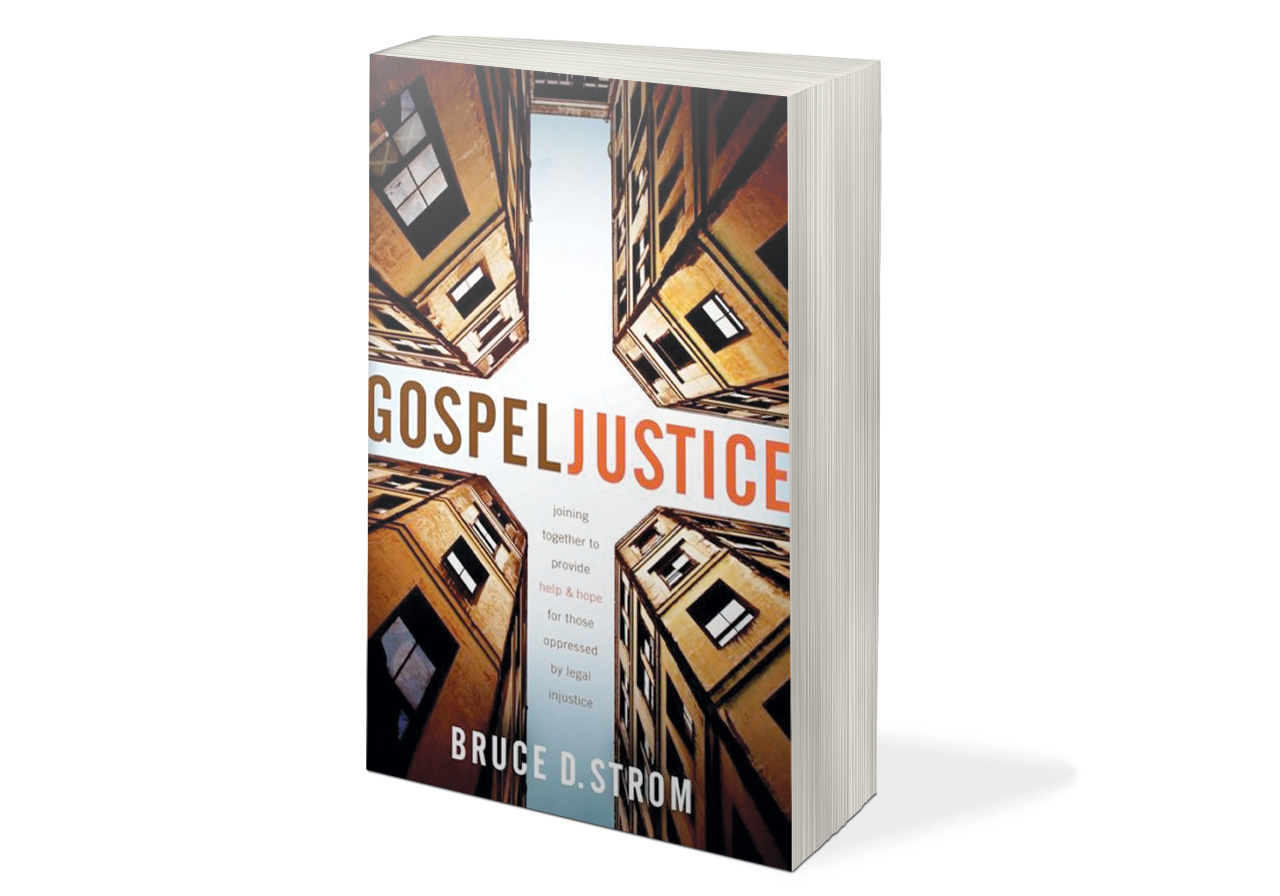With hundreds of churches as clients and a case that reached the Supreme Court, Bruce Strom had a law practice that both Christian and secular lawyers would covet. But some 13 years ago, his career took an unexpected turn.
Gospel Justice: Joining Together to Provide Help and Hope for those Oppressed by Legal Injustice
Moody Publishers
208 pages
$16.47
After a sequence of events that included two rainbows and the conception of twins after seven years of trying, Strom launched the Illinois-based organization Administer Justice, "a comprehensive program of educational outreach, legal assistance, financial counseling, and conflict resolution services" for clients who otherwise could not afford them. Three years later, God "threw him overboard," and Strom found himself running the ministry full-time at poverty-level wages. Gospel Justice: Joining Together to Provide Help and Hope for Those Oppressed by Legal Injustice interweaves the story of Administer Justice (which takes its name from Zechariah 7:9) with a call for lawyers and nonlawyers alike to "leave the comfort of the boat to step into the storm of injustice."
Each of the book's ten chapters takes its cue from a character or other feature of Jesus' parable of the Good Samaritan who, unlike the priest and Levite who pass by, comes to the aid of a beaten and robbed man. In one chapter, the Samaritan himself teaches the importance of taking risks to assist others; a chapter on the robbers explores how America's poor and aged are often taken advantage of; the priest is an object lesson in making excuses for not helping; and the Levite provides a lesson on harsh views of justice. Even the inn where the injured man stayed makes an appearance (a symbol of the church's responsibility to provide refuge), as does the Jericho Road (the need for social change).
Strom is fond of clever wordplay. He tells one client that if justice is "just ice," she will be sinking—that is, "sin" will be "king." A few pages later, he warns that justice should not be pronounced "just is." "History" is "His story." Readers who prefer such devices in moderation will be relieved that the frequency diminishes as the book progresses.
Gospel Justice is sprinkled liberally with stories of men and women served by Administer Justice, often in moving ways. It also exposes systemic abuses—such as zombie debt collectors, who send threatening letters to everyone who has the same name as a person who owes an old, unpaid debt—and advocates legal changes to address problems that affect large groups of vulnerable citizens. Administer Justice's most controversial practice is assisting undocumented/illegal immigrants without insisting that they turn themselves in. Strom gives a spirited defense. "Our office obeys the authorities," he writes. "Where benefits are permitted we enforce these benefits, and where they are denied we pursue legitimate alternatives. But the system is broken."
If Strom has his way, Christians will work not just for "faith informed" justice, but for "faith transformed" justice. (Gospel Justice gives a detailed chart of the differences between the two, but does not explore the material in the text.) At Administer Justice, faith-transformed justice means beginning each consultation with prayer if the client is willing, and integrating the spiritual and practical dimensions of the ministry, so that they connect as closely as (in the words of Gary Haugen of International Justice Mission) breathing in and breathing out.
Administer Justice is one of the largest and most effective in a wave of justice ministries that have emerged around the country in the past decade or so. Gospel Justice is an inspiring account of its origins and vision, and a handy resource for those who may be called to take the plunge.
David Skeel is a law professor at the University of Pennsylvania. He blogs at Less than the Least.











